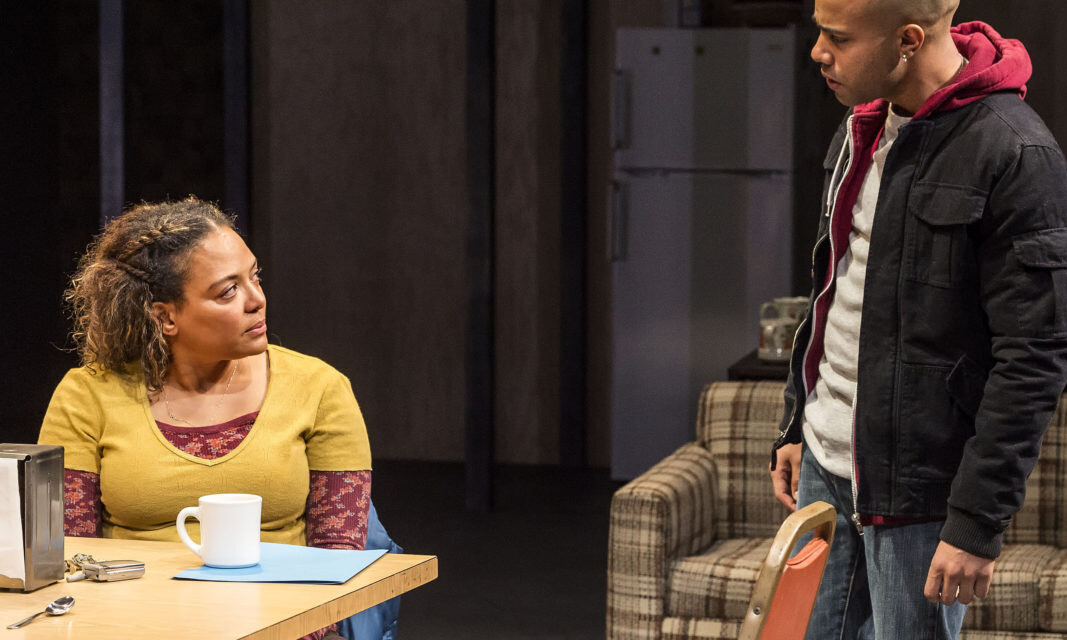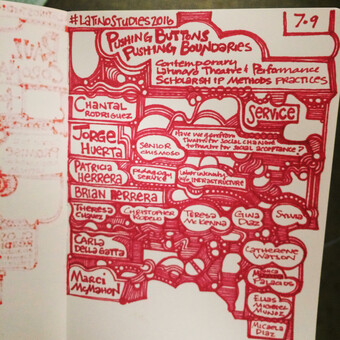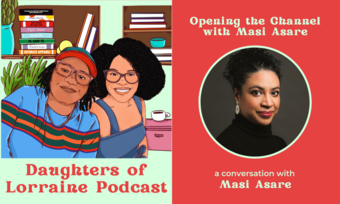The first is Carlos Murillo’s Dark Play, or Stories for Boys. Embarrassingly, I first heard of this play when a white intern I worked with told me how important it was to him growing up. I thought about how nice it would have been to have a Latinx playwright like Murillo to look up to in my formative days of my theatre education—why did my colleague get to have that and not me? To know that a Latinx playwright had created such a profound and groundbreaking work would have been especially inspiring to me. I mean this play, which opened in 2007, is about a boy who “discovers the intoxicating pleasures of inventing fake personalities in the chat rooms of the World Wide Web.” It’s about love and obsession and the cruelty of boys. And chatrooms! Hold on, this reminds me of…
Water by the Spoonful, which is of course the Pulitzer-winning play by Quiara Alegría Hudes. The summary by Dramatists Play Service describes it best: “Somewhere in a chat room, recovering addicts keep each other alive, hour by hour, day by day. The boundaries of family and community are stretched across continents and cyberspace as birth families splinter and online families collide.”
Both Dark Play and Water by the Spoonful are plays about the internet, and they came way before Dear Evan Hansen ever had the cojones to put the internet on stage. The internet, which theatre seems to be scared of, is something that will only become more ingrained in the stories we tell, especially for a generation of playwriting students who grew up with it. To exclude plays like these from a theatre curriculum, especially when you consider the fact that they are some of the only published plays about the subject, is almost as much of a disservice to younger generations as excluding plays by any Latinx writers has been.
These are of course just some of my personal favorites and suggestions to incorporate into a curriculum. These are plays that aren’t even about Latinx people as much as they are about Americans. Water by the Spoonful has as many non-Latinx characters as Latinx ones. And the characters in Dark Play are non-specific in regards to race/ethnicity. It’s not like Latinx writers only write about Latinx people. But we do write real stories about real Americans.
And for an ethnic group that actively erases itself as a survival tactic in this nation that increasingly vilifies us, it means a lot for burgeoning Latinx playwrights to be exposed to plays by Latinx writers and to feel like we have a place in the American theatre.
As I studied playwriting and read plays by playwrights who identify with various communities, plays that were assigned to me, I grew more comfortable in my own identities and was inspired to search for plays by people like me. I finally, of my own volition, read the works of Kristoffer Diaz, Nilo Cruz, and Eduardo Machado. I’ve only just begun to work my way through the list. But I wish I had started sooner. I wish I had been assigned one, or two, or three of them. I wish my classmates had been assigned their work, so they could admire plays by Latinx writers the way I’ve admired plays by Martin McDonagh and Lynn Nottage; Rajiv Joseph and Branden Jacobs-Jenkins.
Theatre and education and theatre education are all spaces where it’s so easy for Latinx people to feel unwelcome. And for an ethnic group that actively erases itself as a survival tactic in this nation that increasingly vilifies us, it means a lot for burgeoning Latinx playwrights to be exposed to plays by Latinx writers and to feel like we have a place in the American theatre, one of the greatest storytelling avenues in the world. Because we have for a long time now. (Now, dare I suggest we go so far as to push bilingual plays into a theatre curriculum? After all, if people can understand the old English in Shakespeare’s works, they can certainly understand a little Spanish here and there.)
This isn’t to be mistaken as an attack on the school I went to or the incredibly generous and inspiring playwriting professors and mentors I have had. I get it. No one was thinking about whether or not any of the other professors were assigning Latinx plays specifically. But now you can, and now you have a few ideas. For more, see this list. And, for that matter, it also means a lot to have Latinx mentors. Something many of us young Latinx theatre artists struggle to find.
This is a call for theatre schools to incorporate a more complete history of theatre in America into their curriculum (if they haven’t already! This isn’t a witch hunt… yet). One that includes voices from the largest ethnic minority group in the country. One that includes Fornés alongside Sam Shepard and Edward Albee. One that includes Cruz, Diaz, Hudes, Machado, Murillo, Alfaro, Murillo, Saracho, and so on.












Comments
The article is just the start of the conversation—we want to know what you think about this subject, too! HowlRound is a space for knowledge-sharing, and we welcome spirited, thoughtful, and on-topic dialogue. Find our full comments policy here